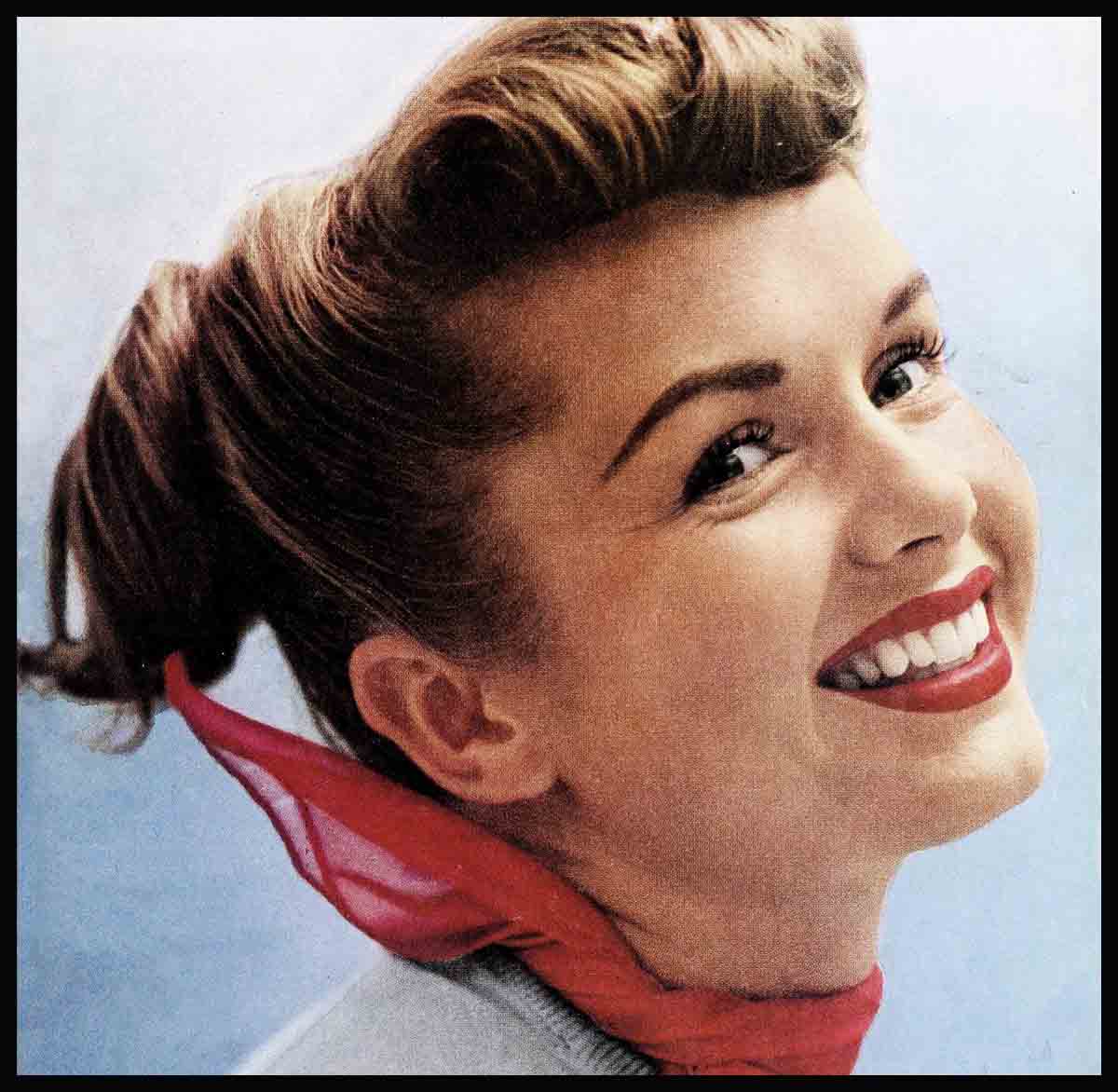
Getting In Step for Marriage—Debbie Reynolds
“Eddie and I know just what we want in a house, now,” Debbie Reynolds declared, as she fitted her ninety-eight pounds into a snug position on the sofa in her dressing room. On her pert, pixie face was the secret glow that only comes to a girl deeply in love. She was chewing away at her gum and had already kicked off her ballerina slippers—a necessary preliminary to conversation for Debbie. Conversation with Debbie these days always centers around such nice topics as—brides, weddings, getting prepared for marriage and love. There’s no doubt, when you listen to Debbie talk, she’s been giving some mighty serious thinking to the subject of marriage.
“We want English architecture with contemporary furniture,” she continued seriously. “And light wood paneling, three bedrooms, a little garden in front, a swimming pool and barbecue, big trees, but not too much ground to take care of. And we want it in Beverly Hills. But we’ll have to give up a view, because a view out here means a hillside far from neighbors. I’m a sugar-borrower, you know. I love having folks close by. When I’m by myself, I get a spooky feeling. You know, I’ve never really spent a night alone in a house!
“Eddie and I finally decided to buy a lot and build. All the English-style houses we saw were so big—five and six bedrooms and baths. And we couldn’t find any house with nearly enough closet space either.
“I’ve always dreamed of having enough closet space. I have lots of clothes—they’re part of my work and I’ve always thought, what a heavenly day when I can have everything in place.
“And Eddie—has he got clothes! He needs so many changes for his work. But he isn’t as hipped on closet space as I am. What he dreams of are plenty of bathrooms. He recently bought his mother a house that has four. That’s because when he was a youngster there were seven kids that had to get ready for school and there was only one bathroom. I suppose he’ll ask the architect to squeeze in as many as possible in the plans. Well, some people collect stamps or coins!
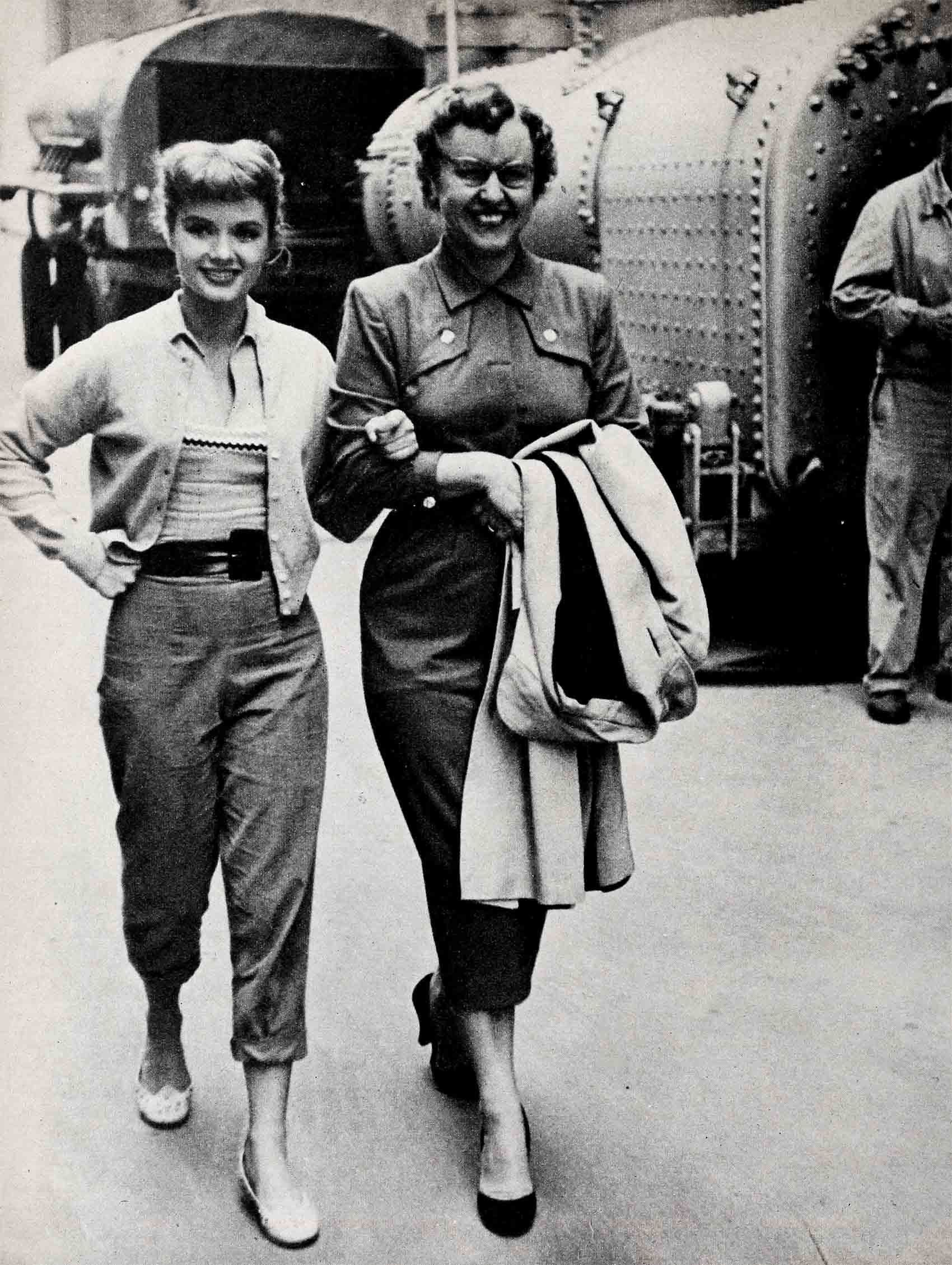
“You know, a girl who thinks she’s all grown-up and pretty sensible in general can make serious mistakes when it comes to this marriage business.” Debbie sat bolt upright and assumed the yoga position, knees pulled up under her. “Mom always taught me to work out my own problems and make my own career decisions. I have seven years of movie work behind me,” she explained, “and I’ve never regretted a contract or business arrangement I’ve made. But I’ve only been in love a short time and . . .”
While Eddie was in New York it seems Debbie saw a house and immediately decided it “was the most.” It was a 14-room English house, next door to where Alan Ladd’s daughter Carol and Dick Anderson were building. Debbie felt it was a real bargain and she begged the owners not to sell until Eddie could come out to see it.
When Eddie saw it, all he could say was. “We don’t plan to take in boarders.” And then seriously, he pointed out, too, that the house needed extensive repairs as well as a staff to maintain.
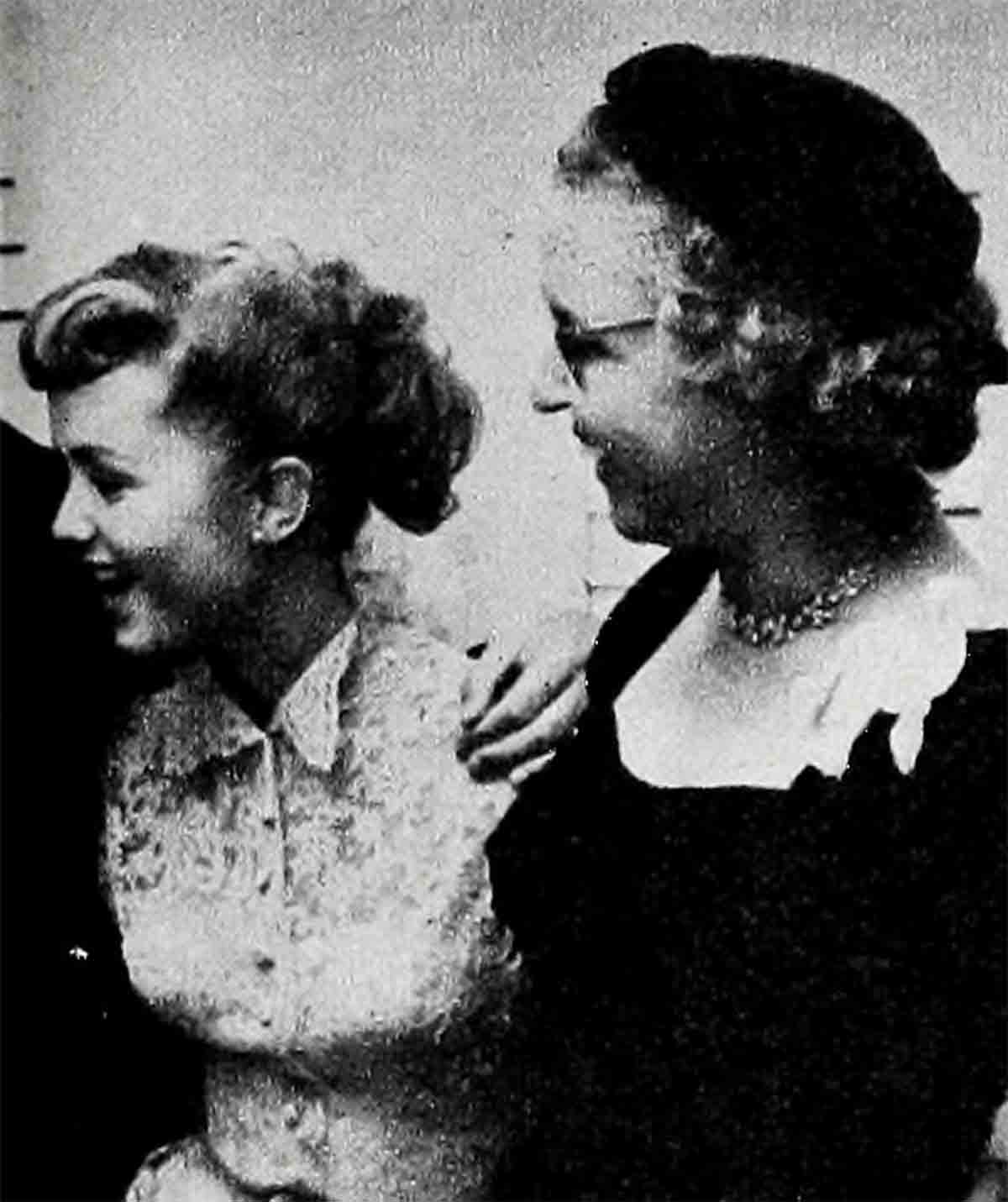
“I realized I’d made a mistake,” Debbie admitted, candidly. “Eddie and I would never have found each other in that house, and it taught me that one shouldn’t make snap decisions on important things. We plan to live in our house a long time and we want it right, a place to bring up our children.
“Earlier, I’d almost made another mistake, too—one that I’m sure I’d have been sorry about forever after. When Eddie told me he wanted to buy me an engagement ring, I suddenly got very practical and suggested that he use the money as a down payment on our house instead. Eddie is wiser than I am and he knew there is a place for sentiment and a place for practicality, so he didn’t pay any attention to my suggestion and bought my ring. Honestly, when he put it on my finger while I was broiling steaks out by the pool, instead of beaming with happiness, I burst into tears and ran into my bedroom crying. Eddie followed, looking bewildered and hurt. Then I explained how happy I was and how glad I was that he didn’t listen to me. I’m real sentimental, and it suddenly came over me how Id hate to have missed that wonderful moment.

“When I thought over those two bad decisions it really gave me a shock—set me thinking. When you get engaged there are so many new things to straighten out in your mind—things a girl never bothers to consider—like planning a house or buying furniture. Before, all you had to decide was whether to buy this scarf or belt or have a strawberry or chocolate malted.
“ ‘Am I mature enough for marriage?’ I’ve asked myself plenty of times. Sometimes I’m a little scared. When I talked about this with Mother, she smiled and said all girls feel like that when suddenly confronted with marriage.”
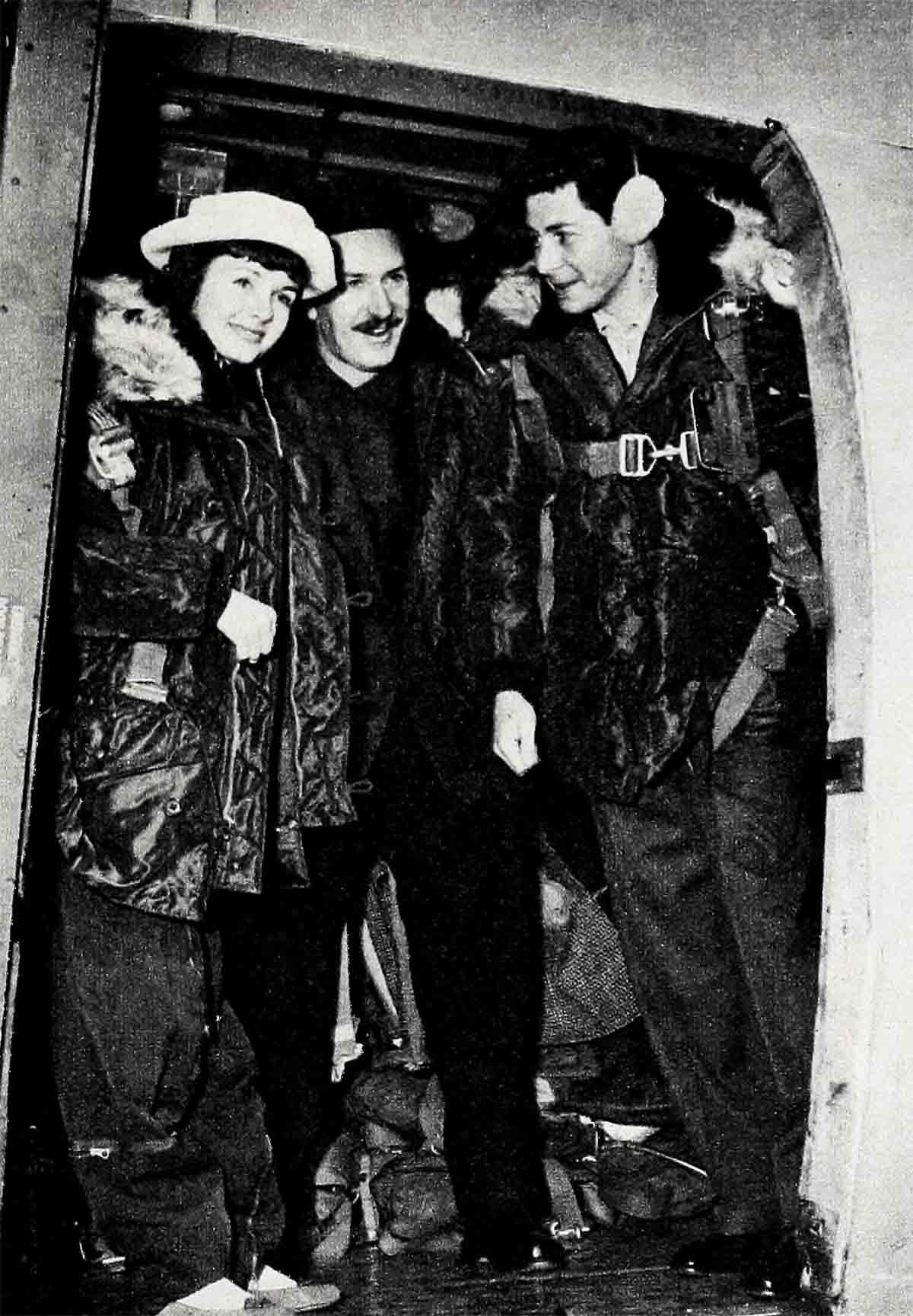
Like many girls, face to face with the most important step in adult life, Debbie knows that successful marriage is not something that just happens full-blown to a young person with a romantic impulse. Marriage is a partnership, a creative achievement, out of which you get only what you’ve put into it. It demands effort, sound knowledge and advance planning.
The coming of her first real love has indeed changed Debbie. And it’s not merely that her face shines these days. Love has given her a thoughtful, softer, more pondering quality, lessened her quick laughter and given her greater depth and understanding—an emerging maturity. In a few short months she has leapt the considerable distance womanhood.

Those who knew Debbie in the “pre-Eddie” period can certainly see the change. Formerly a merry madcap, a junior-grade Betty Hutton who made with the jive talk, today Debbie is a more gentle, more serious girl who, if at all possible, lives even less now by the glamour standards of the town and more by her own forthright sense of values—the ones her mother instilled in her. Most girls who have made good in the movies grow away from their home community. The reverse is true of Debbie; she invited her neighbors in Burbank to the star-studded engagement party given her and Eddie by Eddie Cantor.
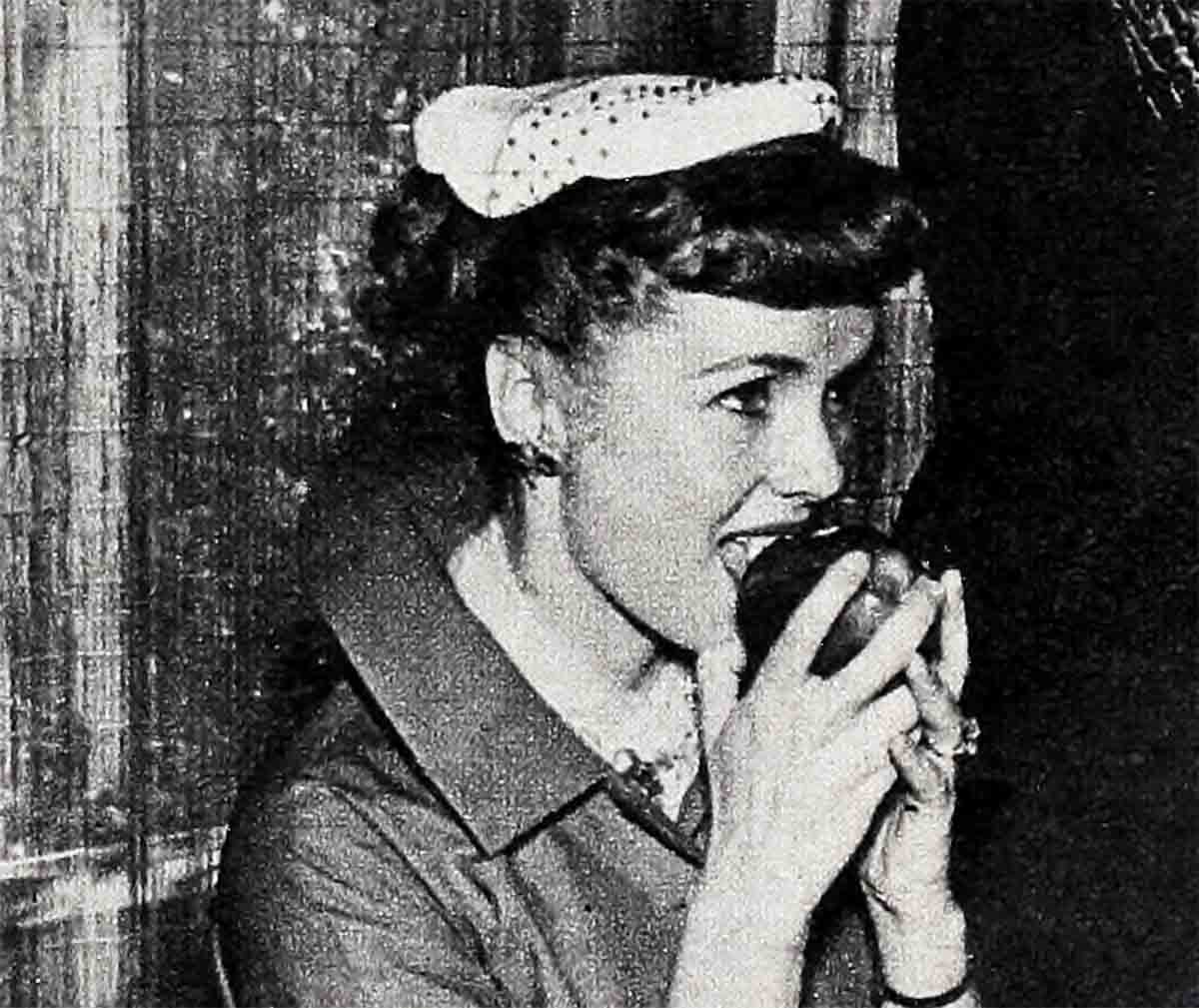
“When a girl becomes engaged,” Debbie explains, “at first she’s in a kind of unreal whirlwind, full of the fun and excitement of planning a wedding, going to parties and showers. Her time is spent in talking about such romantic things as where to spend the honeymoon and planning the home and her trousseau. Then suddenly you find there’s another kind of trousseau, too—a mental one. And if you hope to be a conscientious wife, it requires taking stock before one marries. If a good marriage were simple—something that just comes naturally, there would be no need for pre-marriage courses and for marital counsellors.”
Naturally Debbie knows that all life is, in a sense, a preparation—good or bad—for marriage. She couldn’t wish for any couple to have a better marriage than that of her parents. So, having grown up in the warmth and love of a happy home, Debbie feels she’s predisposed to follow in the same secure pattern. Eddie, on the other hand, is the son of divorced parents (his mother has remarried) and for him there might be a different type of adjustment.
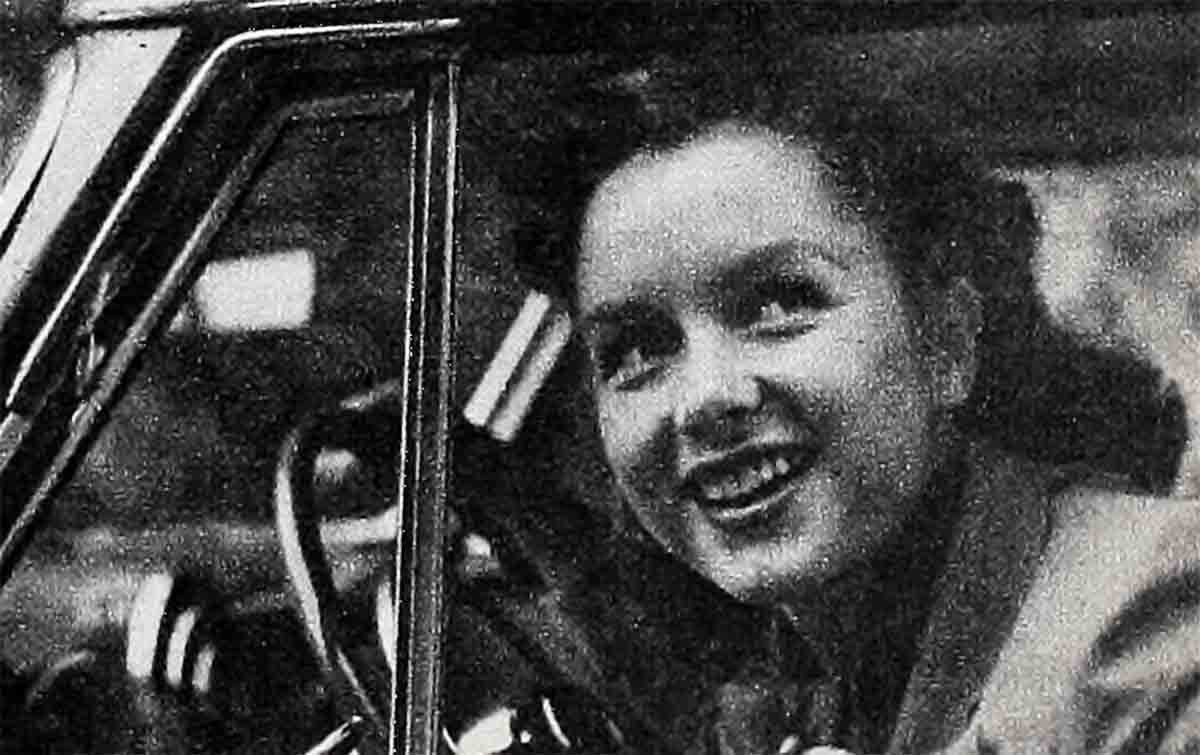
The engagement period is the time for adjusting, for becoming better acquainted, for resolving inevitable differences of opinion on important matters, such as the husband’s right to a comfortable, well-run home; the question of budgets and money; getting along with in-laws; bringing up children. This is the time for finding out if one is emotionally free from parents and can be independent of them; for exploring each other’s personality and background; building up interests in common; deciding whether a wife will continue to work or not; also deciding on the length of the engagement period itself.
One of the few times that Debbie and Eddie found themselves with a difference of opinion was on the question of a long or short engagement. Eddie felt, “We know we are in love now; so why wait? Let’s get married right away.” But Debbie, though just as deeply in love, disagreed. Ir that, she was following the counsel of marriage experts who suggest engagements of six months to a year. For a courtship period, rightly handled, is a virtual insurance policy for successful marriage.

“Eddie and I were very busy and didn’t have much time to be together,” Debbie explained further. “Because of our work, at first, our dates were far apart. I felt I really needed more time to find out if we were really in love. I wanted to be sure I just wasn’t carried away by the spell of Eddie’s tremendous popularity, his wonderful voice and personality and the fun of getting to know him. When I knew it was love, I accepted his proposal. Everyone was trying to rush us into an engagement, but I felt we needed this time to get to know each other better. I found it also takes time to plan a wedding. I want a traditional June one with brides-maids, flower girls and me in a white gown with yards and yards of veiling flowers and champagne toasts and a wedding cake. I’m sentimental and want the works! We’ve planned the wedding for the end of June, so we have lots of time to make the arrangements.”
“In ‘Susan Slept Here’ I had a wonderful line,” Debbie continued. “It was—When I get married it has to be the biggest day of my life. And to make sure of that, Eddie and I are trying to get to know all about each other to find out the big and little things. For instance, Eddie was very poor as a youngster. And every time he sees a certain shade of light blue shirt it takes him back to those childhood days because blue was the color of the shirts that his mother got from the welfare service and patched up for him.
“And he remembers, too, when he was about four singing away in his dad’s grocery store in South Philadelphia. But as soon as a customer complimented him, he’d stop from shyness. His dad would beg him to sing, but Eddie wouldn’t. Today he’s still shy—and quiet and thoughtful and easygoing. I guess opposites attract because as Mother says, I’m a shouter. Wouldn’t it be horrible if two people who were both talkers like me married and kept on talking at the same time?”
According to marriage experts one of the subjects married people talk about most—and disagree on—is income and how to spend it. But for Debbie and Eddie this won’t be a problem. As Debbie explains, “That’s because we won’t have to budget our money personally. We both have business managers who know all about income taxes, what we can afford for a house, for furnishings, for living expenses and the like. So it’s up to them to tell us what we can spend. I know that budgeting is kind of a dull subject for a girl in love, that she’d rather decide whether to buy a white chiffon negligee or shell pink nylon. But in that mental trousseau, it’s a subject of great importance. How to use money may bind a couple together or be a cause of conflict. A budget shouldn’t be thought of as something negative, like a restriction on spending, but rather as a plan for obtaining what is important.”
Those who have followed Debbie’s career since she was named Miss Burbank of 1948 do not fear that she will go overboard on the subject of spending money when she becomes Mrs. Edwin Jack Fisher. The girl who got herself a job selling men’s shorts at J. C. Penney’s in Burbank while she was on layoff from Warner Brothers at the start of her career has, in fact, a thrifty Scotch streak and has been carefully putting away surplus savings in income property. Eddie has also carefully saved his money, although he’s helping his family.
“No, it isn’t money that has a place in Debbie’s mental trousseau these days. Rather, it’s how to arrange their work schedules so they may be together. Eddie’s cross-country commitments kept him flitting from engagement to engagement while Debbie’s career is solidly grounded in Hollywood.
“Eddie and I,” she says, “have seen too many Hollywood marriages reach the divorce courts because of just this problem. So we’re planning to live in Hollywood six months of the year and the rest of the time in an apartment in New York. It’ll be a gypsy-like life, but the important thing is that we’re together. Eddie will televise some of his shows from the Coast while I appear in films. Then I’ll be free to be with him in New York. If a film I’m working on should run a few weeks longer and Eddie has to be in New York, we wouldn’t mind that separation. But months of separation, that’s murder for any marriage.
“I know it’s the thing for engaged actresses to toss off, ‘I’d give up my career in a flash if it meant being separated from my husband.’ Personally I don’t think that’s necessary, and I don’t intend to give up my work—not that I think I’m God’s gift to acting. It’s just that ever since I was sixteen I’ve worked hard to get where I am in films. If I didn’t love the work I wouldn’t be in it. Just the same I feel that it is the husband’s career that’s most important in any family. And that if concessions along this line must be made, it’s up to a wife to make them. The trick, though, is to work things out so that both have to make adjustments but neither one has to make a sacrifice.
“We know that we’re both in a demanding and complicated profession that’ requires lots of understanding on both sides. I thought I was in a time-consuming business with a fourteen-hour day, but Eddie’s is worse. He has rehearsals. recordings and performances for his tv weekly show; music arrangers and conductors, manager, agent, business and legal advisers to confer with. In addition, he must devote time to song-picking sessions, travel to publicize his songs with disc jockeys, personal appearances, benefits and press interviews. He has a secretary to help him with fan mail and autograph sessions for his fan clubs. Eddie tends to overwork himself; I want to help him all I can, to see to his comfort and health. With a full-time career of my own I know that I must plan on letting someone else have charge of housekeeping and cooking.
“About the cooking, according to Mother, it’s probably just as well. When I point out to her that I got two merit badges from the Girl Scouts for cooking she says they must have been looking the other way when they gave them to me. Anyway, I plan to watch Mother’s way with enchiladas. Grandma taught her eighty-five different ways to make them, back in Texas, and I feel sorry for everybody who loves enchiladas and other spicy Mexican dishes, and who can’t sample Mom’s. I’ve loved them for as long as I can remember and while I learned to make fair ones, I’d better learn how she does it. Anyway it’s a good thing Eddie isn’t one for pheasant under glass or duck with flaming cherries, because I’m more the ham hocks and lima bean casserole type.”
The final subject that Debbie has been pondering these excitement-filled days is one that she refuses to consider a problem at all. And that is the matter of religion. Eddie was confirmed at thirteen in the Orthodox Jewish faith; Debbie has been, from her earliest Sunday-school days, a member of the Protestant Church of the Nazarene, in fact, she received a white Bible for perfect Sunday-school attendance. The press has tried to raise a controversy concerning this difference of religion. But Eddie and Debbie refuse to be drawn into it.
Both of them have strong religious back-grounds which color their thinking about standards and values and it’s unthinkable that religion will not play an important role in their marriage—as it must do in any really sound marriage. As a wise person said, “It takes internal props to withstand external pressures.” And the main prop is a profound belief in God, while the other two are idealism and a sense of humor. On all three counts the crooner and his diminutive sweetheart are well endowed.
Like all deeply religious people, their innate philosophy is expressed in giving, in forgetfulness of self. An example was the way they spent Christmas, not in a gay round of Hollywood parties to which they were invited, but away entertaining troops in a lonely, snow-covered Army camp in Idaho.
“Ill-informed and prejudiced people,” explained Debbie, “have tried to make a religious problem for Eddie and me. There isn’t any. It’s true he’s Jewish and I’m Protestant. We’re both open-minded and both tolerant of every religion. We both have faith in God—and I think we’ve demonstrated that we live by it. What could become a problem when we both believe in God, when we both respect each other’s convictions? The time to worry, it seems to me, would be if either of us had no religion and didn’t believe in any higher power.
“I’ve always been deeply interested in how people worship. Lori Nelson and I used to attend Sunday service at different churches to see how others pray to God. And I’ve attended the high Holy Day services with Eddie and found it a beautiful, deeply-moving experience. Daddy and Mother admire and approve of Eddie and his parents have told me that they approve of me. I haven’t had time yet to get to know all his brothers and sisters, but I’ve spent lots of time with his mother and dad. Mother and I visited back East with Eddie’s mother; my Dad stayed with Mr. Fisher when he went East. Eddie’s parents are wonderful people, and Eddie is devoted to them. That means a lot to me. He, as well as I, have always followed the commandment, ‘Honor thy father and mother.’
“There’s never been any prejudice in our family—either against anyone or any religion. I’ve been brought up to feel that as far as God is concerned we’re all equal. And who are we to set ourselves up as better than anyone? We like to think that we’re as good as anyone, but we’ve never considered ourselves any better.
“People keep questioning us—‘How will you bring up your children?’ ‘Will you have a religious ceremony at church or a civil ceremony at home? Or are you planning to elope?’ You can count on this: that we won’t elope, that I’ll wear white at the wedding and that we’ll have a long, leisurely honeymoon in Europe. Mother would like me to have a traditional white wedding because she herself didn’t have one. And designer Helen Rose at the studio has promised to design my dress. We certainly plan to have children—twins, I hope. Grandma had twins and maybe we’ll be so blessed.”
Thus does Debbie reveal the deep well of philosophy that lies within her. She knows that the wedding itself contains no magic formula for happiness—that whatever joy she and Eddie achieve will be the result of intelligence, knowledge, love and effort. And these two happy people—so much in love—are willing to make every effort for their future happiness.
THE END
—BY MAXINE BLOCK
It is a quote. PHOTOPLAY MAGAZINE MAY 1955




